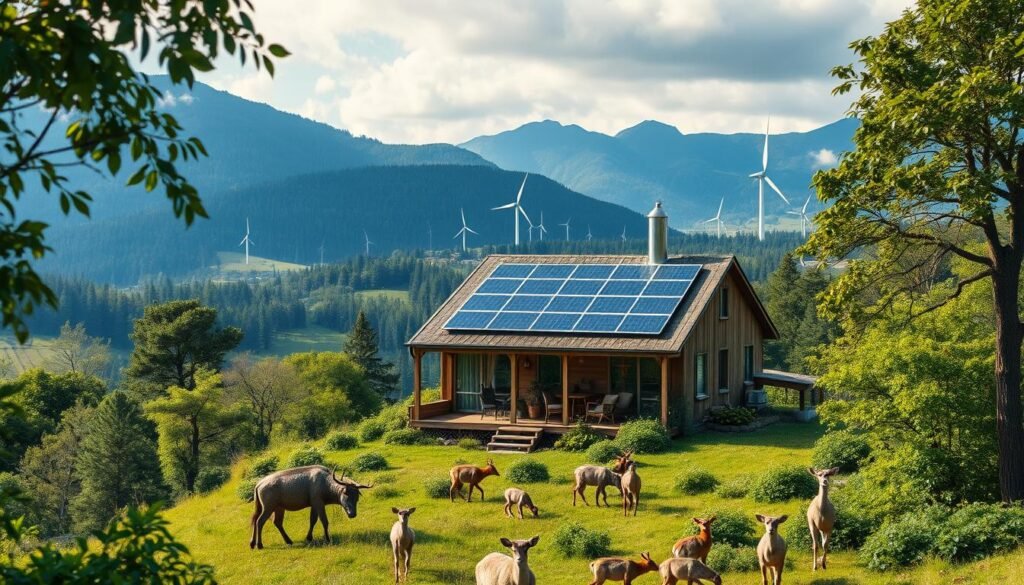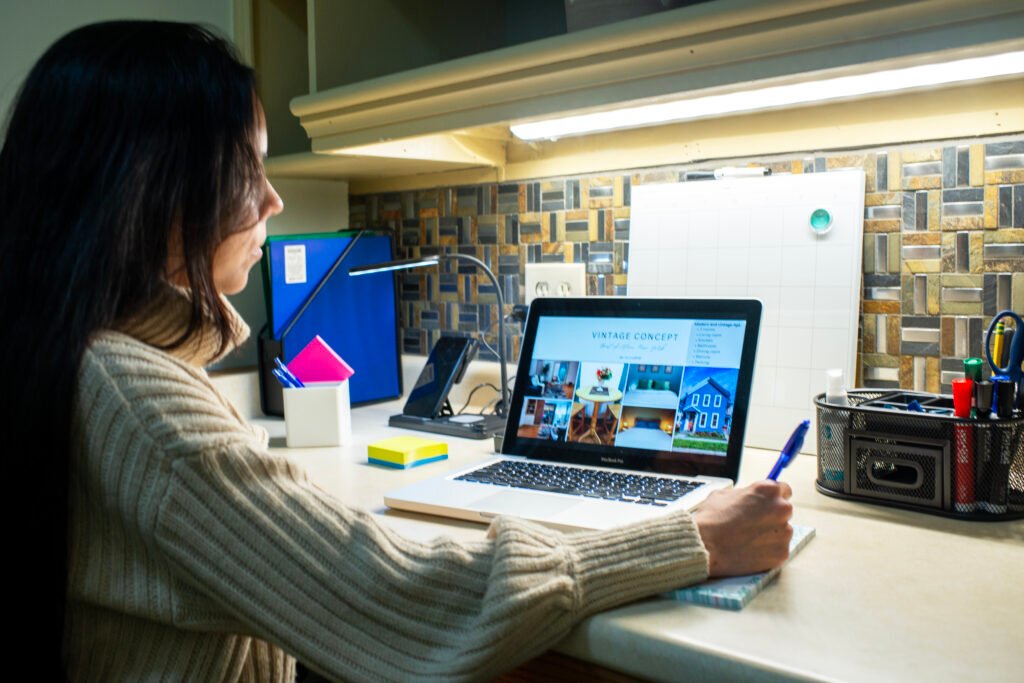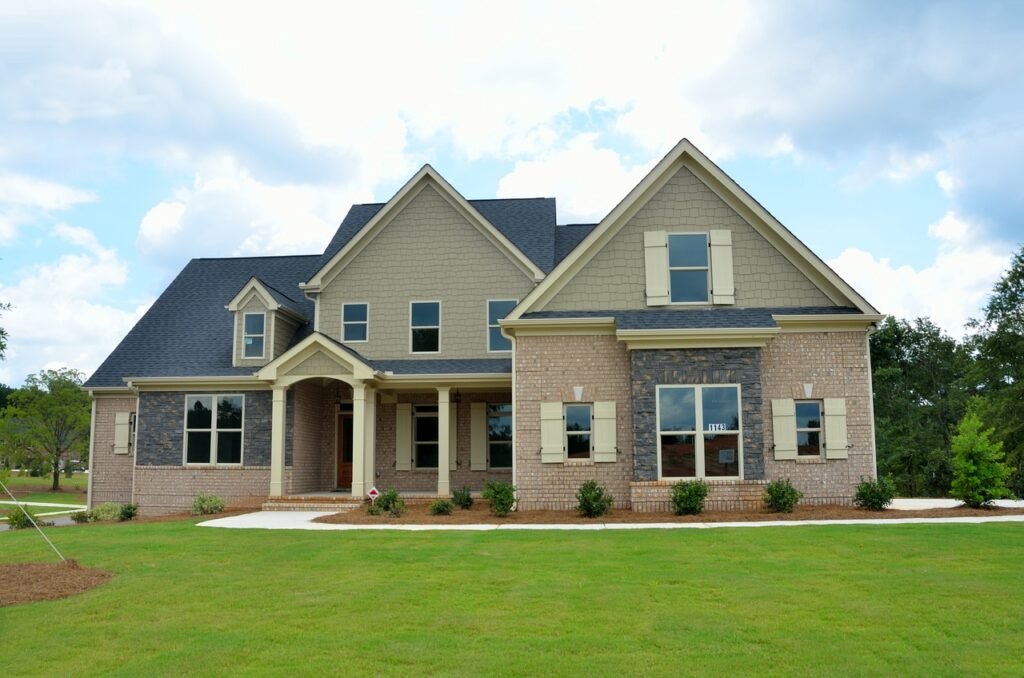As the popularity of short-term rental platforms like Airbnb continues to surge, growing concerns have emerged over the environmental impact of this burgeoning industry. While the convenience and affordability of vacation rentals have made them a popular alternative to traditional hotels, the sustainability of this model has come under scrutiny. From increased energy consumption and waste generation to the strain on local housing markets, the environmental footprint of short-term rentals has become a subject of intense debate.
At the forefront of this discussion is the global phenomenon of Airbnb, which has revolutionized the travel industry and disrupted the hospitality landscape. As Airbnb’s presence expands into communities around the world, the company’s commitment to sustainable practices has come under the microscope, with questions arising about its carbon footprint and the impact on overtourism in popular destinations.
Key Takeaways
- The rapid growth of short-term rentals, particularly Airbnb, has raised concerns about their environmental impact.
- Issues such as increased energy consumption, waste generation, and strain on local housing markets have been linked to the short-term rental industry.
- Airbnb’s sustainability practices and their role in addressing the environmental challenges of vacation rentals are under scrutiny.
- Exploring sustainable solutions and regulatory responses to mitigate the environmental impact of short-term rentals is crucial.
- Collaboration between Airbnb, policymakers, and local communities is necessary to ensure the long-term viability and sustainability of the short-term rental market.
This article delves into the complex and multifaceted issue of the environmental impact of short-term rentals, with a particular focus on Airbnb’s sustainability efforts. By examining the various aspects of this challenge, from energy usage to housing market effects, we aim to provide a comprehensive understanding of the environmental implications of this rapidly evolving industry. Additionally, we will explore the regulatory responses, sustainable practices, and future trends that could shape the trajectory of short-term rentals towards a more eco-friendly future.
Airbnb sustainability, carbon footprint, and overtourism are the key SEO-relevant keywords that will be integrated throughout the article to enhance its online visibility and relevance.
Understanding Short-Term Rentals
The rise of vacation rentals has transformed the hospitality industry, offering travelers a more personalized and flexible alternative to traditional hotels. Short-term rentals, which typically refer to properties rented out for less than 30 days, have become increasingly popular in recent years, driven by the growth of online platforms like Airbnb and VRBO.
Definition of Short-Term Rentals
Short-term rentals are temporary accommodations, often private homes, apartments, or condos, that are rented out to guests for a short period of time, usually less than a month. These rentals provide an attractive option for travelers seeking more space, amenities, and a more authentic local experience compared to traditional hotels.
Growth of the Short-Term Rental Market
- The vacation rental market has experienced rapid growth in the past decade, driven by the increasing popularity of sharing economy platforms.
- According to industry reports, the global short-term rental market is expected to reach over $170 billion by 2025, with a compound annual growth rate of around 7%.
- This growth has raised concerns about the impact of short-term rentals on housing affordability, as the conversion of residential properties into vacation rentals can reduce the availability of long-term housing in some areas.
| Region | Growth in Short-Term Rentals | Impact on Housing Affordability |
|---|---|---|
| North America | Rapid expansion, with Airbnb listings tripling in the last five years | Studies have linked the rise of short-term rentals to increasing rental prices and reduced housing availability in popular tourist destinations |
| Europe | Significant growth, with short-term rentals accounting for a significant share of the hospitality market in major cities | Concerns have been raised about the impact of short-term rentals on housing affordability and the availability of long-term rental housing |
“The growth of the short-term rental market has profoundly transformed the hospitality industry, offering travelers a more personalized and flexible alternative to traditional hotels.”
The Rise of Airbnb
In the past decade, Airbnb has revolutionized the hospitality industry, transforming the way travelers seek and experience accommodations. The platform’s innovative business model has not only disrupted the traditional hotel industry but also had a significant impact on local economies around the world.
Overview of Airbnb's Business Model
Airbnb’s core premise is to connect individual property owners with travelers seeking unique and often more affordable lodging options. By leveraging a user-friendly digital platform, the company has empowered a new generation of “hosts” to offer their homes, apartments, or even single rooms to a global network of “guests.” This peer-to-peer model has allowed Airbnb to rapidly scale its operations, offering a diverse array of accommodations to cater to a wide range of traveler preferences and budgets.
Impact on Local Economies
The rise of Airbnb has had a profound effect on local economies, particularly in popular tourist destinations. On one hand, the platform has provided an additional income stream for homeowners, allowing them to supplement their earnings and potentially offset the costs of homeownership. This influx of income can have a positive ripple effect on the local economy, as hosts tend to reinvest their earnings into their communities.
However, the growth of Airbnb has also been linked to gentrification in certain neighborhoods, as investors purchase properties solely for the purpose of short-term rentals. This can lead to a decrease in available long-term housing options, driving up rental prices and pricing out local residents. The impact on local communities is a complex issue, with both positive and negative implications that policymakers are still grappling with.
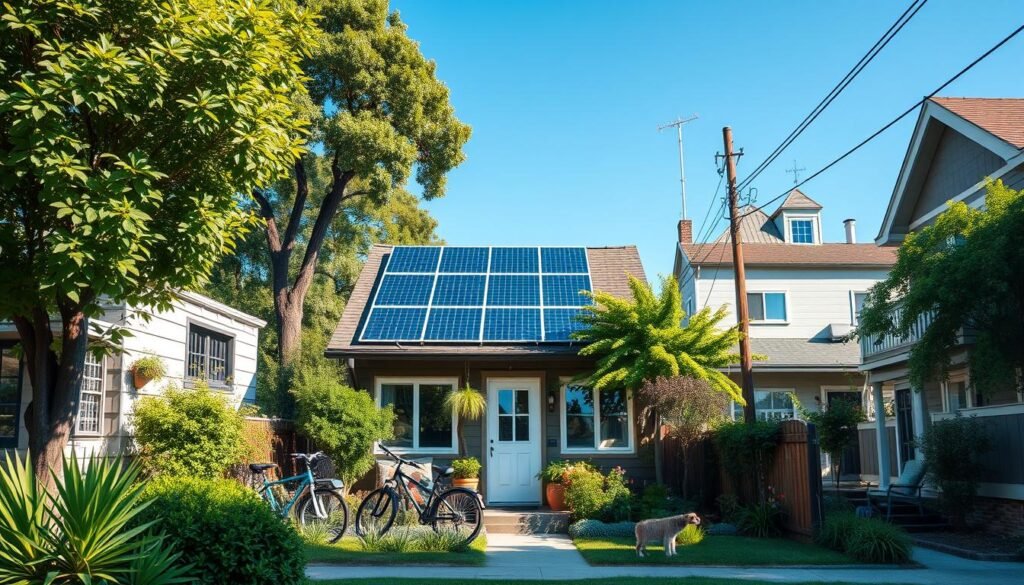
| Positive Impact | Negative Impact |
|---|---|
| Additional income for homeowners | Decreased availability of long-term housing |
| Reinvestment in local communities | Increased rental prices and gentrification |
| Diversification of tourism options | Disruption of traditional hotel industry |
Environmental Concerns Related to Airbnb
As the popularity of Airbnb and other short-term rental platforms continues to rise, so do the concerns surrounding their environmental impact. Two key areas of concern are the increased energy consumption and waste generation associated with these rentals.
Increased Energy Consumption
Short-term rental properties often face higher energy demands compared to traditional residential homes. The frequent turnover of guests, the need to heat, cool, and power each rental, and the use of energy-intensive appliances and amenities can contribute to a significant carbon footprint. Additionally, the lack of consistent energy-efficient practices among hosts can exacerbate this issue.
Waste Generation and Management
The high volume of guests in short-term rentals can lead to increased waste generation, including single-use plastics, food waste, and other consumables. Effective waste management strategies are often lacking, with hosts and guests failing to implement proper recycling and composting practices. This can result in a substantial increase in the overall waste output of these properties.
| Environmental Concern | Impact | Potential Solutions |
|---|---|---|
| Increased Energy Consumption | Higher carbon footprint and resource depletion |
|
| Waste Generation and Management | Increased waste output and disposal challenges |
|
As the short-term rental industry continues to evolve, addressing these environmental concerns will be crucial in ensuring the long-term sustainability of Airbnb and similar platforms.

“Sustainable practices in short-term rentals not only benefit the environment but can also enhance the guest experience and contribute to the long-term success of the industry.”
Housing Market Effects
The rise of short-term rental platforms like Airbnb has had a significant impact on local housing markets in popular tourist destinations. As property owners increasingly convert residential units into lucrative vacation rentals, the availability of long-term housing for local residents has diminished, leading to concerns over housing affordability.
Impact on Local Housing Availability
In many cities, the proliferation of Airbnb listings has reduced the number of homes and apartments available for long-term rentals. This trend has been particularly pronounced in urban areas with high demand for tourist accommodations, where property owners can earn more by renting short-term rather than to permanent residents. As a result, the supply of affordable housing for local communities has dwindled, making it increasingly challenging for residents to find suitable and affordable places to live.
Rental Price Inflation
The increased demand for short-term rentals in popular tourist destinations has also led to a surge in rental prices, a phenomenon known as gentrification. As property owners recognize the potential for higher returns on their investments, they can raise rents or convert long-term rental units into Airbnb listings, pricing out lower-income residents and changing the socioeconomic makeup of neighborhoods.
This trend has sparked concerns about the impact of short-term rentals on housing affordability and the displacement of long-term residents, particularly in areas that have historically been more affordable and accessible to marginalized communities.
| City | Increase in Rental Prices | Impact on Housing Affordability |
|---|---|---|
| New York City | 15% increase in median rents | Low-income residents priced out of neighborhoods |
| San Francisco | 20% increase in median rents | Middle-class families struggle to find affordable housing |
| Barcelona | 30% increase in median rents | Gentrification of historic neighborhoods |
As the impact of short-term rentals on local housing markets becomes more apparent, policymakers and communities are grappling with how to strike a balance between the economic benefits of tourism and the need to preserve affordable housing for residents.

Sustainable Practices in Short-Term Rentals
As the popularity of short-term rental platforms like Airbnb continues to grow, the focus on sustainability has become increasingly important. Hosts and property managers are now exploring various eco-friendly practices to reduce the environmental impact of their short-term rental businesses. Two key areas where sustainable practices are being adopted are eco-friendly property management and the adoption of green certifications.
Eco-Friendly Property Management
Eco-friendly property management in the short-term rental industry involves a range of strategies aimed at minimizing the carbon footprint and resource consumption of rental properties. This includes the use of energy-efficient appliances, LED lighting, and smart home technology to optimize energy usage. Many hosts are also implementing water-saving measures, such as low-flow showerheads and drought-tolerant landscaping, to reduce water consumption.
In addition, sustainable waste management practices, such as providing recycling bins and composting facilities, are becoming more common in short-term rentals. Some hosts even go a step further by using eco-friendly cleaning products and linens to reduce the use of harsh chemicals and minimize the environmental impact of daily operations.
Adoption of Green Certifications
To demonstrate their commitment to sustainability, a growing number of short-term rental hosts and property managers are seeking out green certifications for their properties. These certifications, such as the LEED (Leadership in Energy and Environmental Design) and the Green Key Global Eco-Rating Program, provide third-party verification of a property’s environmental performance and sustainable practices.
By adopting these certifications, Airbnb hosts and property managers can signal to potential guests their dedication to sustainable operations, attracting eco-conscious travelers and positioning their rentals as eco-friendly options within the short-term rental market.
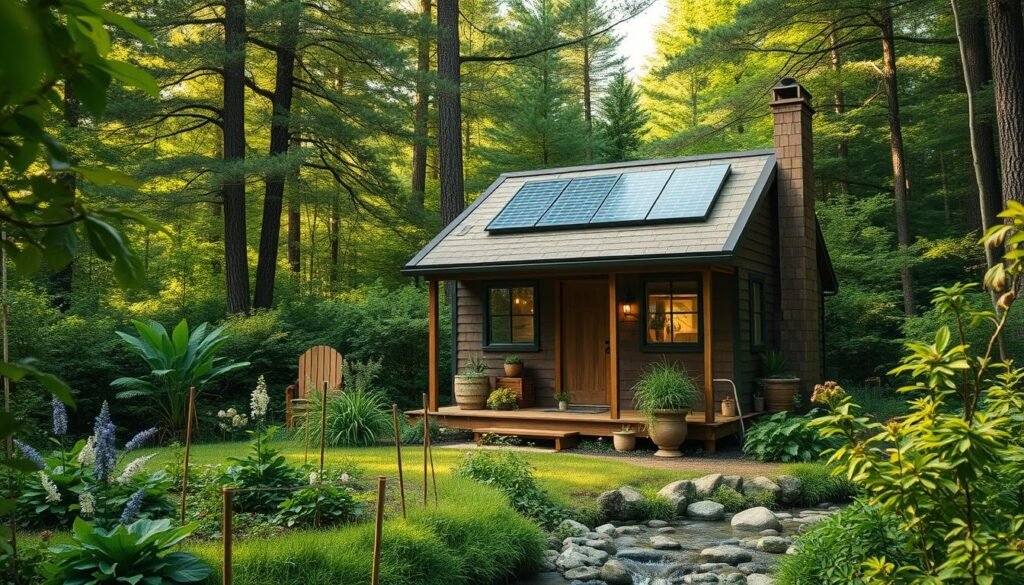
The implementation of sustainable practices in short-term rentals is not only beneficial for the environment but can also enhance the overall guest experience. Eco-conscious travelers are increasingly seeking out Airbnb sustainability and eco-friendly rentals, making this a strategic focus for many hosts and property managers.
Regulatory Responses to Short-Term Rentals
As the popularity of short-term rental platforms like Airbnb continues to grow, local governments and policymakers around the world have been grappling with the need to regulate this burgeoning industry. Concerns over the impact of short-term rentals on housing affordability, neighborhood character, and overtourism have prompted a range of regulatory responses aimed at striking a balance between supporting economic opportunities and preserving community interests.
Local Government Regulations
Many cities have implemented local regulations to address the challenges posed by short-term rentals. These measures often include requirements for host registration, limits on the number of rental days per year, and zoning restrictions on where short-term rentals are permitted. Some municipalities have also imposed taxes or fees on short-term rental operators to generate revenue for affordable housing initiatives or infrastructure improvements.
Regional Policies and Zoning Laws
In addition to local regulations, regional governments and state/provincial authorities have also played a role in shaping the regulatory landscape for short-term rentals. Regional policies may address issues such as overtourism, coordinating regulatory approaches across multiple jurisdictions, and ensuring a level playing field for traditional hospitality businesses. Zoning laws can restrict the location and concentration of short-term rentals, particularly in residential neighborhoods.
| Regulatory Approach | Examples |
|---|---|
| Host Registration | New York City, London, Paris |
| Rental Day Limits | San Francisco, Boston, Berlin |
| Zoning Restrictions | Amsterdam, Barcelona, Hawaii |
| Taxes and Fees | Chicago, Portland, Reykjavik |
As the short-term rental market continues to evolve, policymakers are faced with the ongoing challenge of balancing the economic benefits of this industry with the need to address its regulation and mitigate any adverse impacts on local communities.
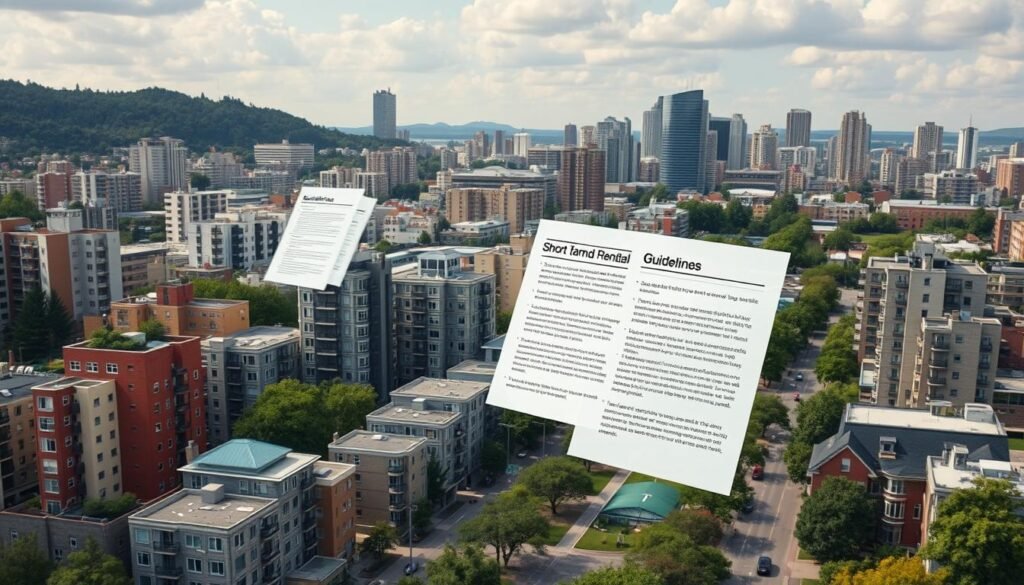
Airbnb's Corporate Sustainability Initiatives
As the short-term rental industry continues to grow, Airbnb has taken significant steps to address its environmental impact and promote sustainable practices. The company has made notable commitments to renewable energy and forged partnerships with environmental organizations to reduce its overall carbon footprint.
Renewable Energy Commitments
Airbnb has pledged to power all of its offices and data centers with 100% renewable energy by 2030. This ambitious goal aligns with the company’s broader sustainability efforts and demonstrates its commitment to reducing its carbon footprint. Airbnb has also encouraged its hosts to adopt renewable energy solutions, such as solar panels, to further minimize the environmental impact of their properties.
Partnerships with Environmental Organizations
- Airbnb has partnered with the World Wildlife Fund (WWF) to promote sustainable tourism practices and protect natural habitats in popular travel destinations.
- The company has also collaborated with The Nature Conservancy to support conservation efforts and provide guests with opportunities to engage in eco-friendly activities during their stays.
- Additionally, Airbnb has worked with the World Green Building Council to promote the use of sustainable building materials and energy-efficient design in its rental properties, thereby enhancing the Airbnb sustainability efforts.
These strategic partnerships demonstrate Airbnb’s commitment to addressing the environmental challenges associated with the short-term rental industry and its desire to be a leader in sustainable practices within the hospitality sector.
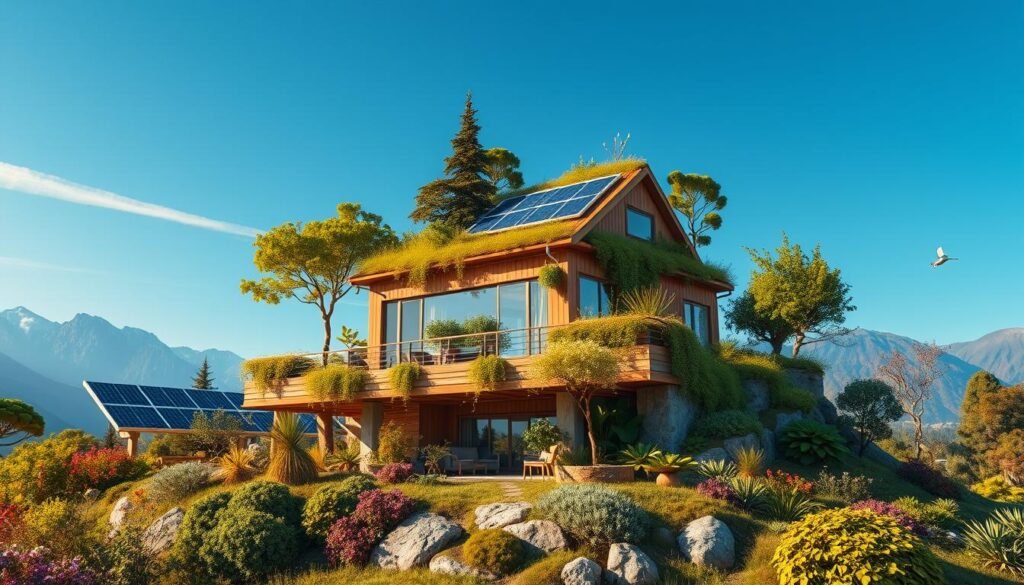
| Sustainability Initiative | Objectives | Key Achievements |
|---|---|---|
| Renewable Energy Commitments | Powering Airbnb offices and data centers with 100% renewable energy by 2030 | Encouraging hosts to adopt renewable energy solutions, such as solar panels |
| Partnerships with Environmental Organizations | Promoting sustainable tourism practices, protecting natural habitats, and supporting conservation efforts | Collaborations with the World Wildlife Fund, The Nature Conservancy, and the World Green Building Council |
Guest Behavior and Environmental Awareness
As the short-term rental market continues to grow, the role of guests in promoting sustainable practices has become increasingly crucial. Guests, as the primary users of these accommodations, hold the power to influence the environmental impact of their stays. By fostering a sense of environmental awareness and encouraging responsible tourism, guests can contribute to the sustainability of the short-term rental industry.
The Role of Guests in Sustainability
Guests can play a pivotal role in shaping the sustainability of short-term rentals. From simple actions like conserving energy and water to actively participating in recycling and waste reduction initiatives, guests can make a tangible difference. By adopting eco-friendly behaviors during their stays, guests can help reduce the carbon footprint of their accommodations and contribute to a more sustainable future.
Promotion of Responsible Tourism
Beyond individual actions, guests can also promote the concept of responsible tourism. This involves making informed choices when selecting short-term rental accommodations, prioritizing properties with sustainable practices and a commitment to environmental stewardship. By spreading awareness and advocating for responsible tourism, guests can encourage hosts and the short-term rental industry as a whole to adopt more eco-friendly policies and practices.
By recognizing their role as active participants in the sustainability of short-term rentals, guests can contribute to mitigating the negative environmental impacts of overtourism and promoting responsible tourism. Through their collective efforts, guests can drive positive change and ensure that the short-term rental industry becomes a more sustainable and eco-friendly sector.
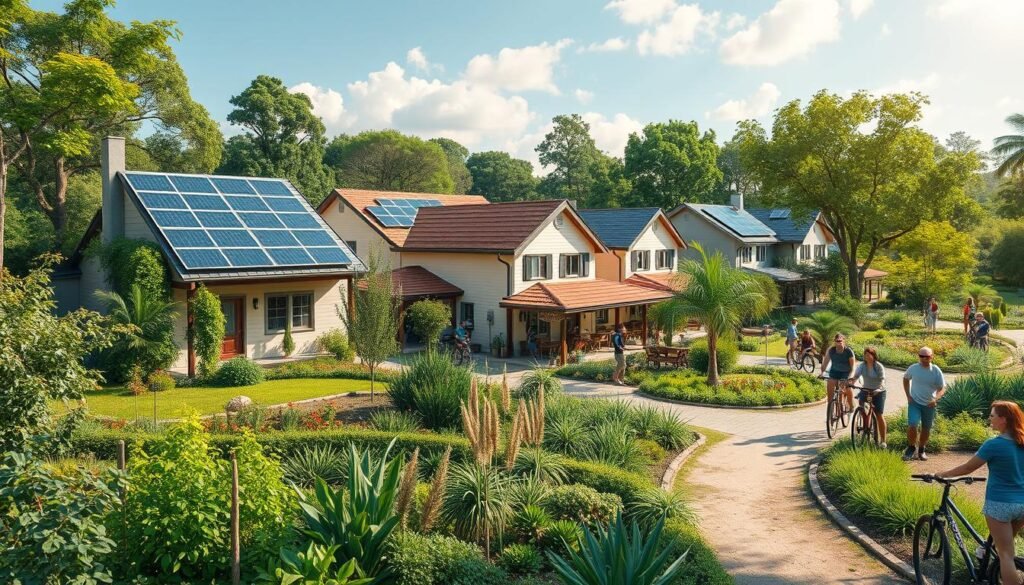
| Sustainable Guest Behaviors | Benefits to Short-Term Rentals |
|---|---|
| Energy conservation | Reduced carbon footprint |
| Water conservation | Efficient resource utilization |
| Waste reduction and recycling | Improved waste management |
| Selecting eco-friendly accommodations | Increased demand for sustainable rentals |
“Travelers have the power to drive positive change in the short-term rental industry. By embracing responsible tourism and eco-friendly practices, guests can contribute to a more sustainable future for the sector.”
Neighborhood Impacts
As the popularity of short-term rentals continues to rise, their impact on local neighborhoods has become a growing concern. The influx of transient visitors can lead to significant changes in community dynamics, as well as strain on the infrastructure and services that serve these areas.
Changes in Community Dynamics
The presence of short-term rental properties can alter the character of a neighborhood, as long-term residents are displaced by a constant flow of temporary guests. This can contribute to a sense of gentrification, where the unique identity of a community is eroded, and local businesses and services cater more to the needs of visitors than those who live there year-round.
Effect on Local Services and Infrastructure
The increased demand for housing, driven by the growth of short-term rentals, can also have a significant impact on housing affordability in the local area. As rental prices rise and availability decreases, long-term residents may find it increasingly difficult to afford to live in their own neighborhoods.
Moreover, the influx of visitors can put a strain on local services and infrastructure, such as waste management, public transportation, and emergency services. Neighborhoods may struggle to keep up with the increased demand, leading to overcrowding, traffic congestion, and a decrease in the quality of life for both residents and visitors.
| Impact | Description |
|---|---|
| Changes in Community Dynamics | Displacement of long-term residents, erosion of neighborhood identity, and a focus on catering to short-term visitors rather than local needs. |
| Effect on Local Services and Infrastructure | Strain on waste management, public transportation, emergency services, and housing affordability due to increased demand. |
As communities grapple with the challenges posed by the rise of short-term rentals, it is crucial to find a balance that preserves the unique character of neighborhoods while also accommodating the needs of both residents and visitors. Developing sustainable solutions requires a collaborative effort between policymakers, short-term rental platforms, and local stakeholders.
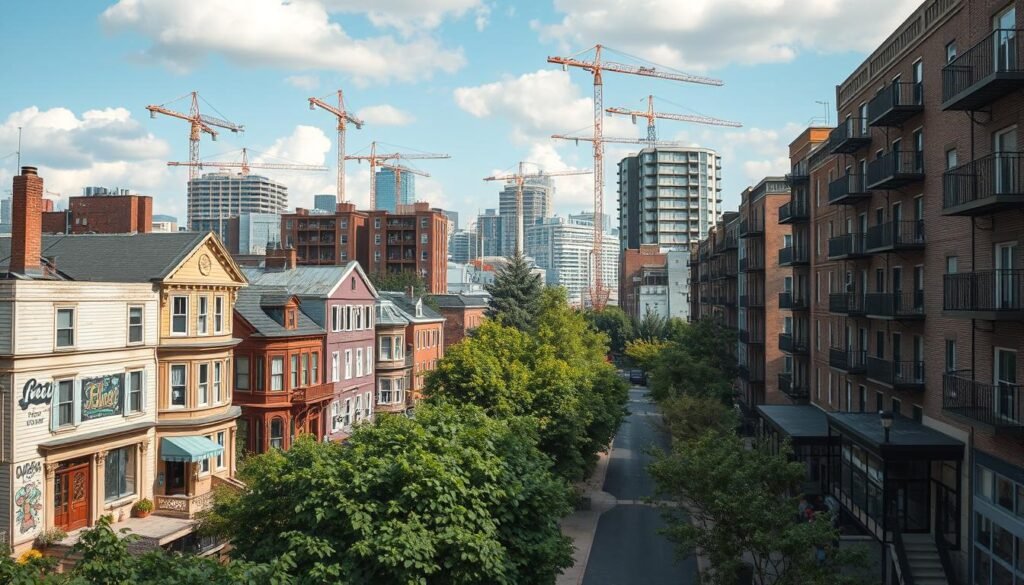
Comparison with Traditional Hotels
As the short-term rental industry continues to evolve, it’s essential to examine how it compares to traditional hotels in terms of sustainability and environmental impact. While both accommodation types have made strides in adopting eco-friendly practices, understanding the nuances can help travelers make more informed choices when seeking eco-friendly rentals or hotels.
Sustainability Practices in Hotels
Traditional hotels have long recognized the importance of reducing their carbon footprint and implementing sustainable initiatives. Many hotel chains have made significant investments in renewable energy, water conservation, and waste management programs. Some have even obtained eco-certifications, such as LEED (Leadership in Energy and Environmental Design) or Green Seal, to demonstrate their commitment to environmental responsibility.
Resource Efficiency in Hotel Operations
In terms of resource efficiency, hotels often have a more centralized approach to operations, which can potentially lead to greater economies of scale and more optimized resource usage. For instance, larger hotels may have more advanced energy management systems, efficient laundry facilities, and streamlined waste disposal processes. However, the sheer size and scale of some hotel properties can also present challenges in achieving eco-friendly goals.
Ultimately, the comparison between short-term rentals and traditional hotels in terms of sustainability and environmental impact is a nuanced one. Both accommodation types have unique strengths and challenges, and the focus should be on promoting sustainable practices across the hospitality industry as a whole.
“The future of travel lies in the balance between innovation and environmental responsibility. As the industry evolves, we must continuously seek ways to minimize the carbon footprint of all accommodation options.”
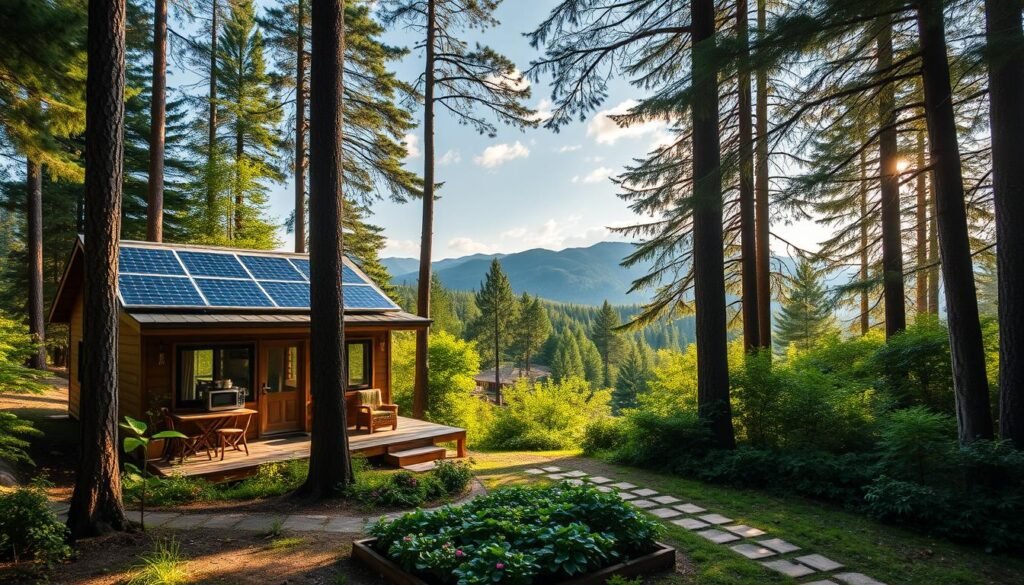
Case Studies of Sustainable Short-Term Rentals
As the demand for eco-friendly travel options continues to rise, the short-term rental industry is responding with innovative sustainable practices. Let’s explore some inspiring case studies of hosts who have implemented successful green initiatives and the valuable lessons learned from their experiences.
Successful Green Initiatives by Hosts
Hosts around the world are leading the charge in making Airbnb sustainability a reality. One remarkable example is the eco-friendly treehouse rental nestled in the forests of Oregon. The host, an avid environmentalist, has outfitted the property with solar panels, composting toilets, and a rainwater harvesting system, reducing the property’s energy and water consumption. Guests rave about the unique experience and the host’s commitment to sustainable practices.
Another case in point is a beachfront eco-friendly rental in Hawaii, where the host has implemented a comprehensive recycling and waste management program. Guests are encouraged to sort their trash, and the host ensures that all recyclable materials are properly disposed of. The host also partners with local organizations to promote beach cleanups and marine conservation efforts, engaging guests in environmentally conscious activities during their stay.
Lessons Learned from Sustainable Practices
- Effective communication with guests is key to ensuring their participation in sustainable initiatives. Clear instructions and signage can help guests understand and embrace the eco-friendly practices.
- Investing in energy-efficient appliances, renewable energy sources, and water-saving technologies can significantly reduce a property’s environmental footprint while also lowering long-term operating costs.
- Collaborating with local sustainability organizations and businesses can open up new opportunities for hosts to promote responsible tourism and support their communities.
These case studies demonstrate that Airbnb sustainability and eco-friendly rentals are not only achievable but can also provide a unique and rewarding experience for guests. By embracing sustainable practices, hosts can contribute to a more environmentally conscious short-term rental industry while setting an inspiring example for others to follow.
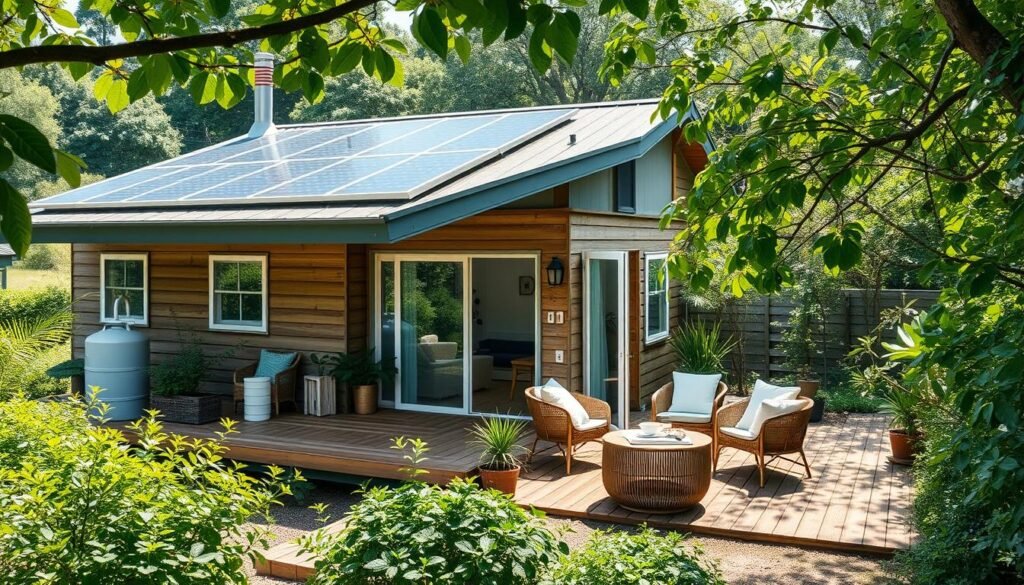
The Role of Technology in Sustainable Rentals
As the short-term rental industry continues to evolve, technology is playing an increasingly vital role in promoting eco-friendly practices and reducing the carbon footprint of these accommodations. From smart home solutions to dedicated platforms, the rental market is embracing innovative approaches to enhance sustainability.
Smart Home Technology for Efficiency
The integration of smart home technologies in short-term rentals is driving improved energy efficiency and resource conservation. Hosts can now install intelligent thermostats, LED lighting, and automated systems to monitor and optimize energy use, reducing the environmental impact of their properties. These smart home features not only enhance the guest experience but also contribute to the overall carbon footprint reduction of the rental.
Platforms for Eco-Friendly Stays
Alongside the incorporation of smart home technologies, specialized platforms are emerging to connect eco-conscious travelers with eco-friendly rentals. These platforms curate listings that prioritize sustainability, offering guests the opportunity to make informed choices when booking their accommodations. By highlighting green certifications, renewable energy sources, and sustainable practices, these platforms empower travelers to make more environmentally responsible decisions.
“Technology is the key to unlocking a greener future for short-term rentals. From smart home innovations to dedicated eco-friendly platforms, the industry is embracing solutions that reduce the environmental impact of these accommodations.”
As the demand for sustainable travel options continues to grow, the role of technology in the short-term rental market is expected to become even more crucial. By harnessing the power of smart home systems and eco-friendly platforms, the industry can work towards a more sustainable future, demonstrating its commitment to environmental responsibility.
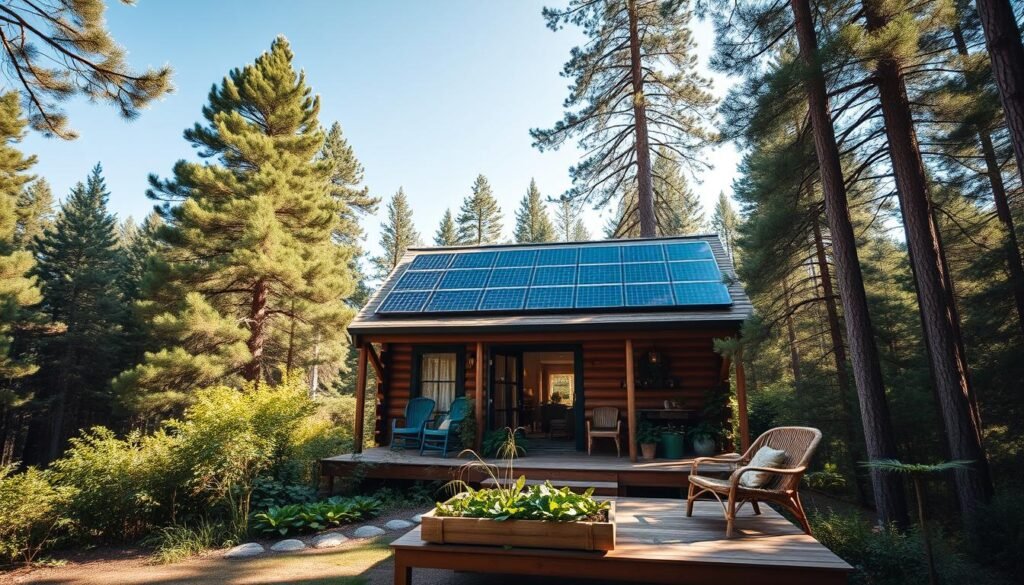
Future Trends in Short-Term Rentals
As the world becomes increasingly conscious of environmental sustainability, the short-term rental market is poised to witness a surge in demand for eco-friendly accommodation options. Travelers, driven by a growing awareness of responsible tourism, are seeking lodging that aligns with their values and minimizes their carbon footprint. This shift in consumer preferences presents both challenges and opportunities for platforms like Airbnb as they navigate the evolving landscape of sustainable short-term rentals.
Rising Demand for Sustainable Options
The demand for Airbnb sustainability and responsible tourism is on the rise, as travelers become more discerning about the environmental impact of their travel choices. Millennials and Gen Z, in particular, are leading the charge, prioritizing eco-friendly accommodations and sustainable practices when booking their short-term rentals. This shift in consumer behavior is driving short-term rental providers to reevaluate their operations and implement greener solutions.
Innovations in Green Accommodation
In response to the growing demand for responsible tourism, short-term rental hosts and platforms are exploring innovative ways to incorporate sustainable practices into their offerings. From the use of renewable energy sources and energy-efficient appliances to the adoption of waste management systems and eco-friendly cleaning products, the industry is witnessing a transformation towards more environmentally conscious accommodation options. Additionally, the integration of smart home technologies and the development of specialized eco-friendly rental platforms are enabling greater efficiency and transparency in the pursuit of sustainable short-term rentals.
| Sustainable Accommodation Features | Benefits |
|---|---|
| Renewable energy sources | Reduced carbon footprint and energy consumption |
| Energy-efficient appliances | Lower utility costs and environmental impact |
| Waste management systems | Proper disposal and recycling of waste |
| Eco-friendly cleaning products | Minimized use of harmful chemicals |
| Smart home technologies | Improved energy efficiency and monitoring |
As the short-term rental industry continues to evolve, the focus on sustainability and responsible tourism is poised to become a defining characteristic of the future market. By embracing these trends, Airbnb and other platforms can position themselves as leaders in the pursuit of eco-friendly and socially conscious short-term rentals, catering to the growing demand for greener travel options.
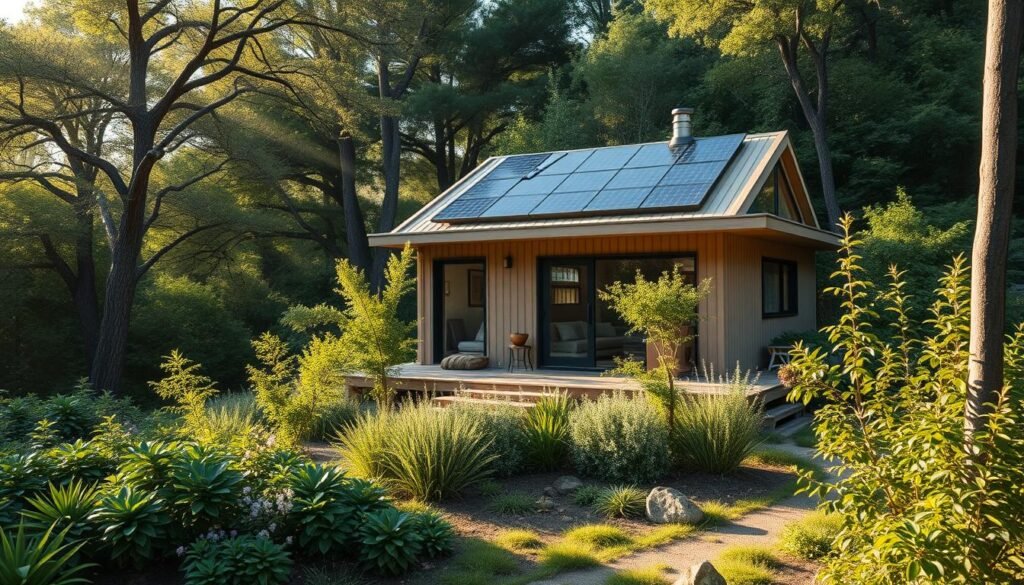
“The future of travel is sustainable, and the short-term rental industry has a crucial role to play in shaping this transformation.” – [Insert Relevant Expert Quote]
Conclusion and Recommendations
The environmental impact of short-term rentals, exemplified by the rise of Airbnb, is a complex and multifaceted issue. While the vacation rental industry has provided economic opportunities for many, it has also raised concerns about its sustainability and the burden it places on local communities and the environment.
Summary of Environmental Impact
The analysis reveals that short-term rentals can contribute to increased energy consumption, waste generation, and disruption of housing markets, leading to rental price inflation and reduced availability of affordable housing. However, the industry has also seen the emergence of eco-friendly practices, such as the adoption of green certifications and the implementation of sustainable property management strategies.
Steps for Sustainable Short-Term Rentals
To foster a more sustainable short-term rental industry, a collaborative effort is required from hosts, guests, and platforms like Airbnb. Hosts should prioritize energy-efficient upgrades, waste reduction initiatives, and the promotion of responsible tourism practices. Guests, in turn, can contribute by making more eco-conscious choices and adopting sustainable behaviors during their stays. Platforms, such as Airbnb, can play a pivotal role by incentivizing sustainable practices, partnering with environmental organizations, and developing technology-driven solutions to enhance the environmental performance of short-term rentals.
By embracing these recommendations, the short-term rental industry can work towards a future where Airbnb and similar platforms can thrive while minimizing their environmental footprint and promoting responsible tourism. This approach will not only benefit the planet but also strengthen the long-term resilience and acceptance of the vacation rental industry within local communities.
FAQ
What is the environmental impact of short-term rentals like Airbnb?
Short-term rentals can have significant environmental impacts, including increased energy consumption, waste generation, and the carbon footprint associated with vacation travel. There are growing concerns about the sustainability of platforms like Airbnb and their contribution to overtourism in popular destinations.
How has the short-term rental market grown in recent years?
The short-term rental market has experienced rapid growth, fueled by the rise of platforms like Airbnb. This growth has had significant implications for housing affordability in many cities, as short-term rentals can reduce the availability of long-term housing and contribute to rental price inflation.
What is Airbnb’s business model, and how has it impacted local economies?
Airbnb’s platform connects hosts with travelers seeking short-term accommodations. While this has provided economic opportunities for some, it has also led to concerns about gentrification and the displacement of long-term residents in certain neighborhoods due to the influx of vacation rentals.
What are the main environmental concerns related to Airbnb and other short-term rentals?
Key environmental concerns include increased energy consumption in short-term rental properties, as well as challenges in managing the waste generated by these properties. The carbon footprint associated with vacation travel to these rentals is also a significant issue.
How have short-term rentals affected local housing markets?
The growth of short-term rentals has reduced the availability of long-term housing in many cities, leading to rental price inflation and concerns about gentrification. This has had a negative impact on housing affordability for local residents.
What are some sustainable practices being implemented in short-term rentals?
Short-term rental hosts and property managers are increasingly adopting eco-friendly practices, such as implementing energy-efficient technologies, using sustainable materials, and obtaining green certifications for their properties. Some platforms also offer listings for eco-friendly vacation rentals.
How are governments and policymakers responding to the rise of short-term rentals?
Local and regional governments have implemented various regulations and policies to address the challenges posed by short-term rentals, including zoning laws, licensing requirements, and restrictions on the number of days a property can be rented out. These measures aim to mitigate the impact of overtourism and preserve community character.
What sustainability initiatives has Airbnb undertaken?
Airbnb has made commitments to renewable energy and has partnered with environmental organizations to reduce the platform’s overall carbon footprint. The company has also introduced initiatives to encourage eco-friendly practices among its hosts and guests.
How can guests contribute to the sustainability of short-term rentals?
Guests play an important role in promoting sustainability in short-term rentals. This includes adopting responsible tourism practices, such as reducing energy and water consumption, properly disposing of waste, and choosing eco-friendly accommodation options.
How do short-term rentals impact local neighborhoods and communities?
The influx of short-term rentals can lead to changes in community dynamics, as well as strain on local services and infrastructure due to increased tourism. This can disrupt the character of neighborhoods and contribute to gentrification in some cases.
How do the sustainability practices of short-term rentals compare to traditional hotels?
Both short-term rentals and traditional hotels are making efforts to improve their sustainability, but the resource efficiency and environmental initiatives can vary. Short-term rentals may have unique challenges in implementing consistent sustainability practices across a diverse range of properties.
What are some examples of successful sustainable short-term rental practices?
There are many examples of short-term rental hosts and properties that have implemented successful green initiatives, such as the use of renewable energy, water conservation measures, and the adoption of eco-friendly materials and furnishings. These case studies provide valuable lessons for the industry.
How is technology contributing to the sustainability of short-term rentals?
Technology plays a significant role in improving the sustainability of short-term rentals, including the use of smart home systems for energy efficiency and the development of specialized platforms that cater to eco-conscious travelers seeking sustainable accommodation options.
What future trends are emerging in the short-term rental market regarding sustainability?
The short-term rental industry is facing increasing demands for more sustainable options, and the market is responding with innovations in green accommodation practices. This includes the development of new technologies, the adoption of eco-certifications, and the promotion of responsible tourism initiatives.

